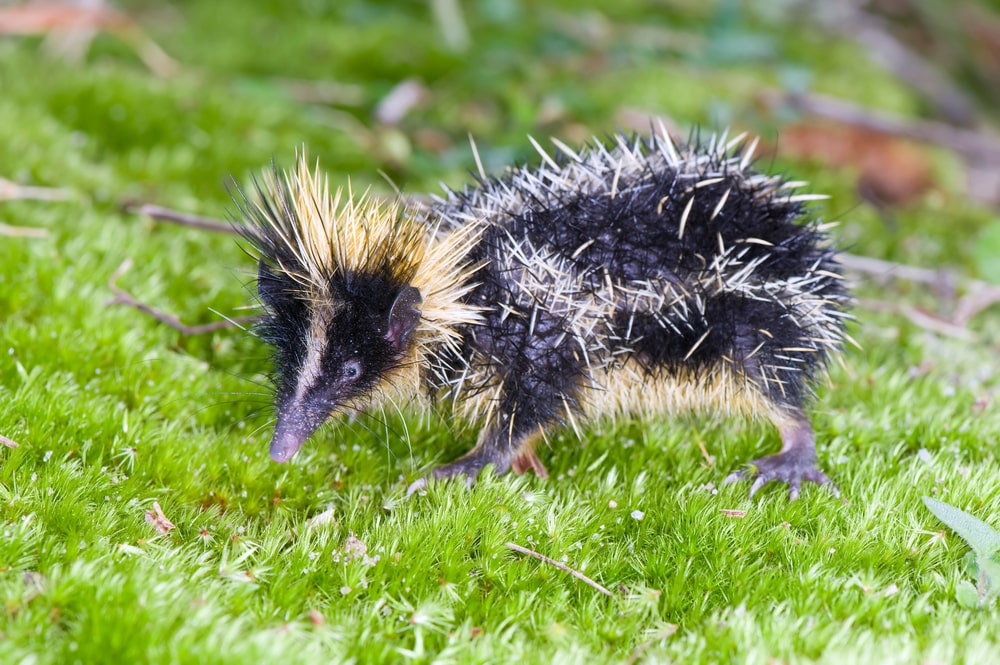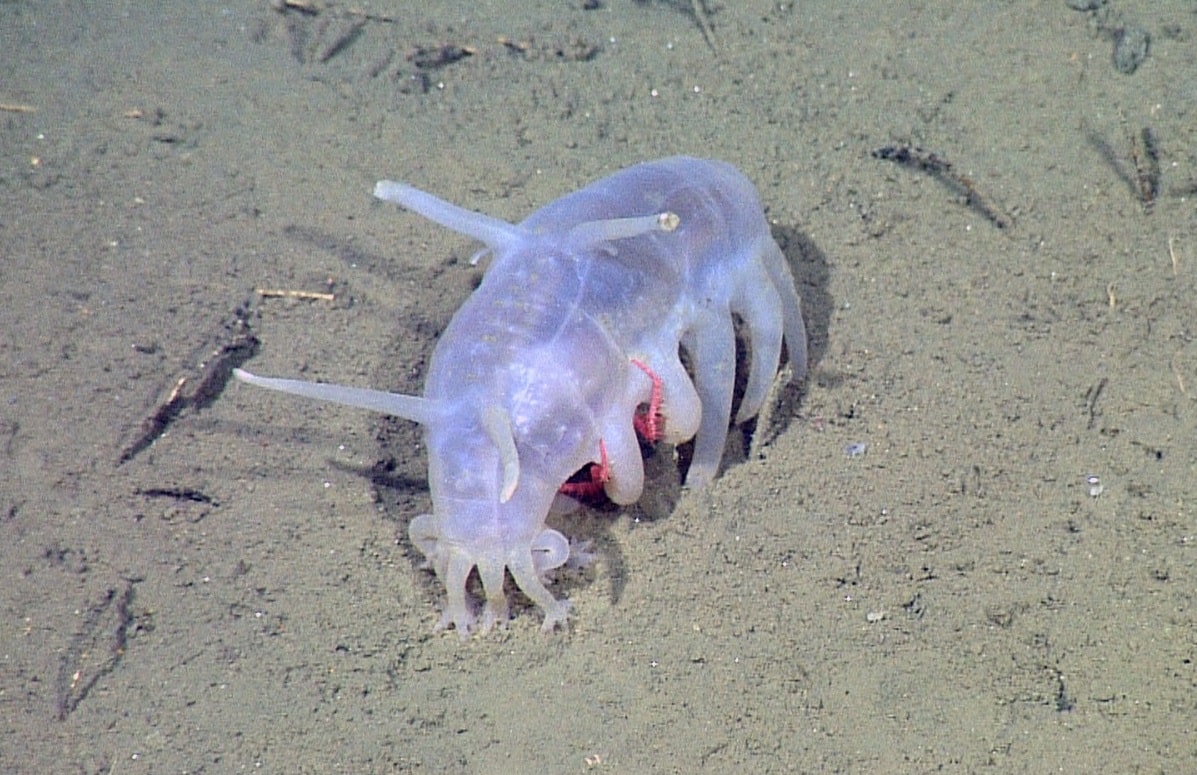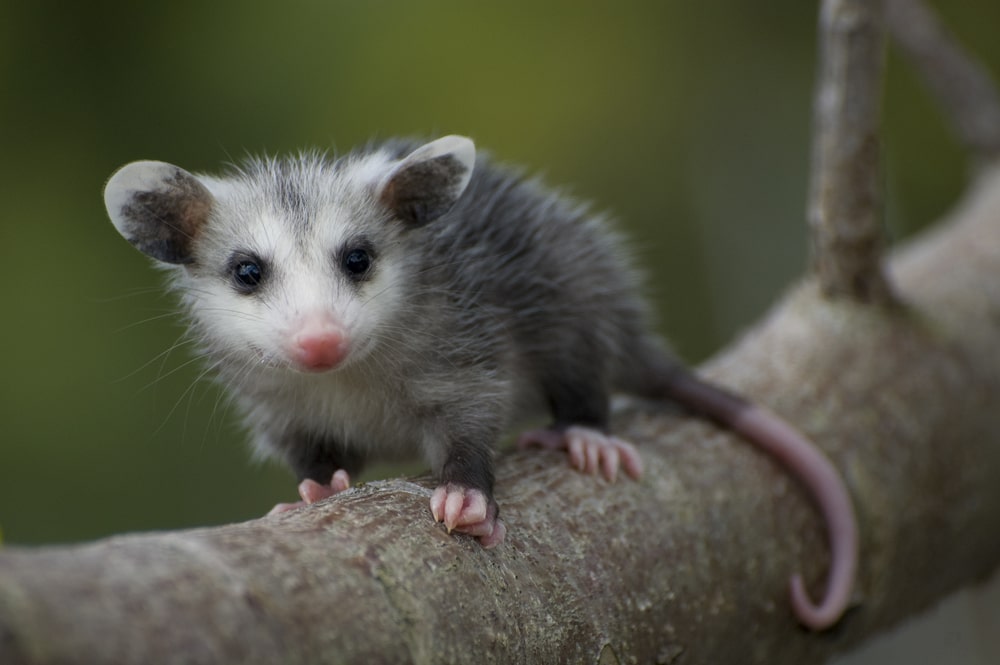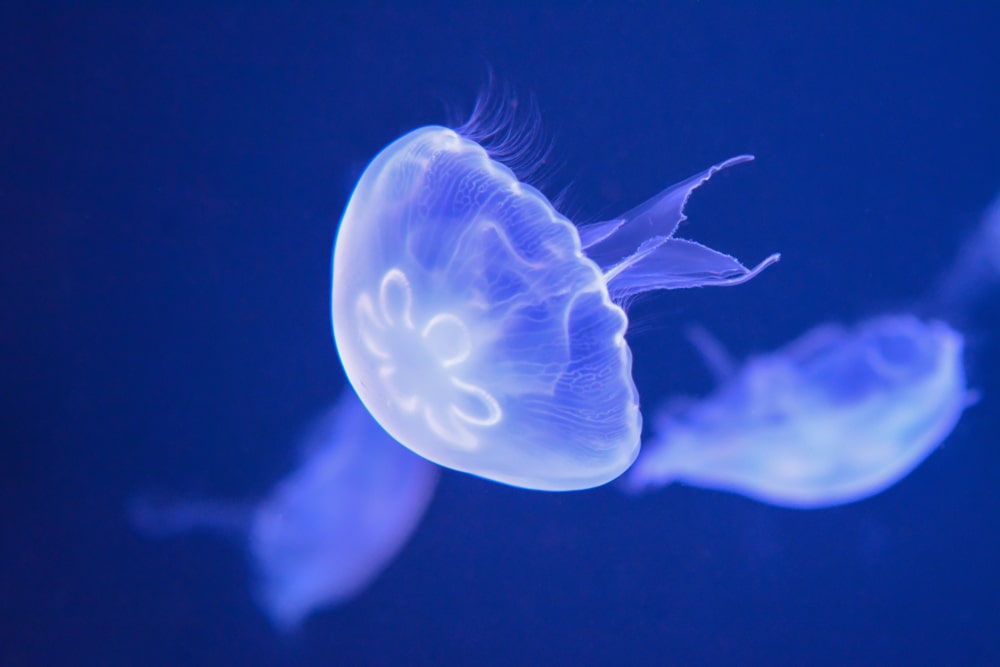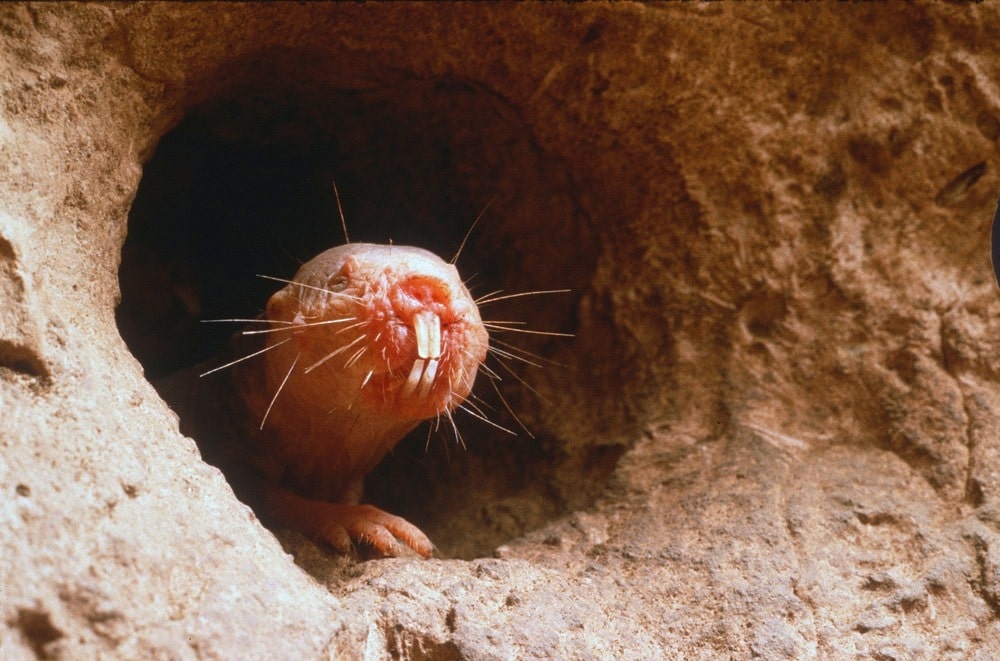Fish-scaled Gecko (Geckolepis) New Species of Madagascar
Fish-scaled geckos (Geckolepis) have often found ingenious ways to escape predators; in fact, some of their species have even perfected the art of severing their own tails on demand in order to survive.

Fish-scaled Gecko
However, this brand-new species of gecko recently discovered in the caves of Northern Madagascar takes things to a whole new level. This particular species of fish-scaled gecko sheds its skin on demand, dropping its scaled exterior in an instant to reveal a thin layer of muscular tissue. Fish-scaled geckos are an incredibly unique species in their own right, but this variation, dubbed Gecko Lepus mega Lepus, is the only one of its kind.
Although several of the other gecko species exhibit similar behavior of shedding scales, but none of them do it as quickly and thoroughly as this one. Plus, let’s face it, it kind of looks like a raw chicken breast after shedding. Its skin, to survive the predator attacking the gecko, will then seek a safe and humid place to regenerate its body, which usually occurs in just a few weeks now. That’s fascinating.
Where do fish scale geckos live?
Fish-scaled geckos live on the islands of Comoro and Madagascar. They are mostly an arboreal group of reptiles, which means they live in trees, though they are also found among limestone formations. Fish scale geckos are nocturnal and eat mostly invertebrates. Though pet owners note they also enjoy meals of fruit, they’re small and could easily fit in the palm of the average adult’s hand, reaching just under 3 inches in body length on average.
Like other geckos, they can drop their tails as a defense mechanism, but that’s not the only method they utilize to escape the jaws of predators. Fish-scaled geckos, who may sometimes be referred to as fish-skin geckos, get their name from their unique scales. These scales are strange in many ways. They are shed when attacked by predators, which include scorpions, birds, and other geckos. When the scales are shed, fishscale geckos actually shed skin at the same time and may be left looking like a freshly picked scab or a piece of raw chicken.
Fish-scaled Appearance
Fish-scaled gecko’s scales are the biggest gecko scales. The scales are similar to the bony scales found on crocodiles, though fish scale gecko scales don’t contain bone. The scales overlap one another and come in a variety of somewhat random shapes and sizes. The scales don’t completely attach to a Fish-scaled gecko’s skin, so when they are removed, they come up kind of like a sticky note from a surface. When the scales come off, they don’t bleed or leave behind scar tissue, and they regenerate after just a few weeks, usually coming back in a slightly different pattern than before.
Fish-scaled habitat
During the time the gecko is regenerating scales, it will likely remain well-hidden as it will be more vulnerable. In general, Fish-scaled geckos are shy creatures and can have a flighty personality. This trait, combined with their fragile scales, is why catching an intact fish scale gecko in the wild is almost impossible. They will almost always drop their scales. Because of this, fishscale geckos must be caught in plastic bags and containers, and originally they were caught in soft cotton.
Fish-scaled geckos have been documented since the late 19th century, but there’s little research on them. Currently, they’re a handful of species, but it’s believed further information will bring about new classifications. They’re not widely kept as pets in areas outside of Madagascar, but some keepers note they may breed in the Madagascan summer, as that is when more individuals become available in the pet trade.
Madagascan summer
The Madagascan summer is approximately wintertime in the Northern Hemisphere. One keeper noted their female laid more than one batch of eggs in captivity, but how many egg clutches fish scale geckos may produce in the wild can differ. Oftentimes, captive conditions can cause discrepancies between wild and owned animals, so information based on captive individuals is not able to provide the whole picture, though it can usually give a lot of insights.
How long do geckos live?
In captivity, Fish-scaled geckos may live a decade, though how long they can live in the wild is unknown. Also in captivity, fish scale geckos have displayed aggression with each other in close proximity, but generally these reptiles can be housed in harmony. Hopefully, in time, more research will be completed in regards to how these animals behave in the wild.
Reference: https://www.youtube.com/@AnimalFactFiles

